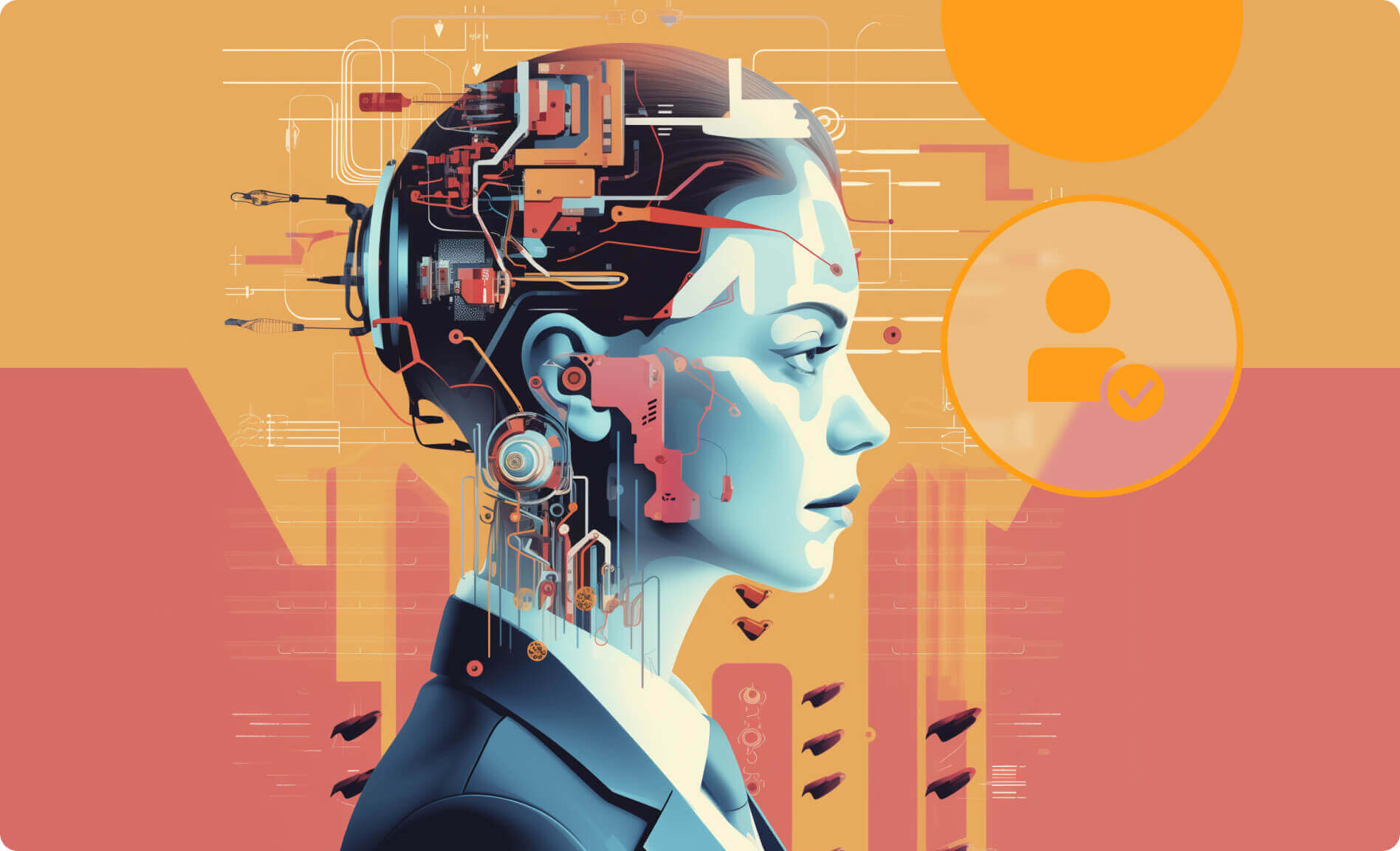Sifting through countless resumes, scheduling interviews, and following up with candidates takes up hours. This process increases the chances of making mistakes or letting biases creep in.
So, a lot of businesses, particularly those facing a shortage of tech specialists, utilize AI-based recruitment tools which can automate repetitive HR tasks an improve candidate engagement. Plus, whether you explore such tools with your in-house recruiters or through IT recruitment services, they give you more context for decision-making.
There is a but… Selecting a talent acquisition AI that justifies investments can be daunting. Well, we’re here to help you find the best fit ⬇️
Breaking Down AI Recruitment Tools: Narrow-Purposed vs. Multi-Purpose
When it comes to AI talent acquisition, tools generally fall into two categories: narrow-purposed and multi-purpose. Multi-purpose tools, while versatile, may need customization. Combining them with specialized tools creates a more effective solution.
For example, you might use a comprehensive Applicant Tracking System (ATS) alongside a specialized coding assessment platform like HackerRank.
Yet, even the best tooling will not bring the desired results, if you don’t train your team. The first “tool” you’ll are HR pros who know how to operate any AI correctly, whether it’s for quickly reviewing resumes or conducting more meaningful video interviews.
Narrow-Purposed Talent Acquisition Tools
These solutions, usually, simplify the life of a talent acquisition specialist noticeably. However, human supervision is essential to ensure the most of them function as intended.
- Resume Screening Tools
Example: Hiretual
Hiretual uses AI to quickly scan resumes, pick out the best candidates, and rank them based on what you’re looking for. This saves a ton of time during the initial screening.
- Interview Scheduling Tools
Example: Calendly
Calendly takes the hassle out of scheduling interviews by syncing with your calendar and finding the best times automatically.
- Candidate Engagement Tools
Example: XOR
XOR’s chatbots help keep candidates informed and happy during the hiring process. Mind that candidates may sometimes feel a lack of personalization when interacting with any chatbots, so it’s great when those chatbots allow human recruiters to step in during potentially sensitive moments, such as discussing compensation or delivering feedback.
- Language Checkers
Examples: EF SET, Duolingo Language Test
These tools test the language skills of candidates, ensuring that you hire specialists ready for professional (often, international) communication.
- Hard-Skill Checkers
Examples: HackerRank, Codility
These platforms are especially useful for assessing technical skills like coding, and ensuring candidates have the necessary competencies for the role.
- Soft Skills Checkers
Example: Pymetrics
AI can assess candidates’ soft skills through gamified tests, helping recruiters gauge traits like teamwork and problem-solving abilities.
- Job Description Optimizers
Example: Textio
These tools analyze and enhance job postings to attract the right candidates by optimizing language, tone, and structure.
- AI Job Ad Platforms
Examples: Adzuna, SmartRecruiters
These platforms leverage AI to create, distribute, and manage job ads across multiple channels, maximizing reach and efficiency. At the beginning of 2025, AI-driven targeting can sometimes miss key candidate segments, and there can be a steep learning curve for optimizing ad performance effectively.
- Video Interviewing Platforms
Examples: HireVue
Video interviewing platforms not only facilitate remote interviews but also offer features like summarizing key points, assessing candidate responses, and even analyzing body language.
Multi-Purposed Tools
These are the Swiss Army knives of recruitment tools. They cover multiple stages of the hiring process and offer a more comprehensive solution.
- Applicant Tracking Systems (ATS)
Examples: Workable, Greenhouse
ATS combines resume screening, interview scheduling, and candidate management all in one place, making the entire recruitment process seamless.
- Recruitment Marketing Platforms
Example: Phenom People
Phenom People uses AI to attract, engage, and convert candidates. It provides tools like personalized career sites, a CRM, and analytics to improve your hiring efforts.
Explaining the Potential Risks of AI-Based Recruitment
Implementing of AI talent acquisition is not all smooth sailing. AI can sometimes reflect the biases in the data it’s trained on, which means someone from your team need to monitor and tweak it regularly to ensure fairness. AI tools handle a lot of sensitive candidate data, so it’s crucial to stay compliant with data protection laws to avoid any legal trouble. Moreover, getting AI tools to work seamlessly with your existing systems can be tricky and might require extra IT resources.
As the Wall Street Journal highlights:
- By 2028, 15% of daily business decisions will be made automatically by AI, a huge increase from zero in 2024. For instance, companies like Johnson & Johnson and Moody’s have already successfully implemented AI agents to enhance their operations.
- At the same time, 25% of cyberattacks on businesses will involve misuse of AI agents.
As you can see, powerful AI creates new ways for hackers to cause harm.
For teams lacking in-house expertise, partnering with specialized IT recruitment services can be beneficial. These experts assist in seamlessly integrating AI solutions, minimizing potential disruptions.
What’s the Cost? To Own AI Tools vs. To Delegate Talent Acquisition Fully to IT Recruitment Services
Crunching the Numbers
Here’s a rough idea of what you might spend on talent acquisition AI:
- Initial Setup Costs: $5,000 – $20,000
- Subscription Fees: $100 – $1,000 per month per user
- Training: $1,000 – $5,000 (one-time)
- Maintenance and Support: $2,000 – $10,000 annually
Comparing with Recruitment Agencies
Recruitment agencies typically charge 15% to 25% of the new hire’s annual salary. For example, if a job pays $70,000 per year, the agency fee could be between $10,500 and $17,500.
So, if you are not ready for a higher upfront cost associated with AI talent acquisition, you can hire an agency. Modern HR agencies professionally use AI when help businesses with everything from talent sourcing to placement. Thus, you can fill your current open positions relatively fast and avoid ineffective AI usage, costs overrun, and legal risks. Plus, good agencies will give you valuable data insights to help make smarter hiring decisions down the line.



































